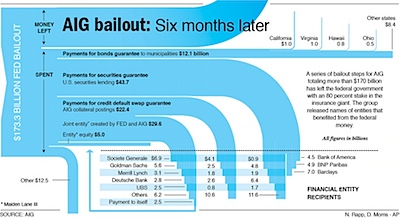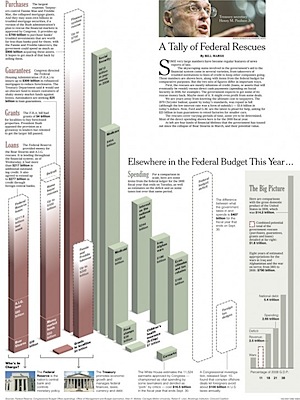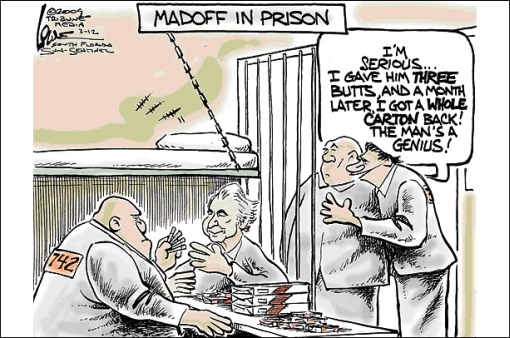Mon 20 Apr 2009
From the latest weekly musings of John Hussman:
The current bounce was fueled by a combination of deteriorating but ?less bad than expected? economic reports (therefore counting as ?upside surprises?), as well as what can only be considered misleading and semi-fraudulent earnings reports from distressed financial companies (the CEOs of these companies should be careful, because Bernie Ebbers is their poster child). Overall, the picture looks a lot like the bounce we observed in May 2001 (just before unemployment shot up and the market plunged again to fresh lows)…
As for the bank ?earnings? that we observed last week, it is worth repeating that operating earnings exclude what happens on the balance sheet. Moreover, we’ve seen some really fascinating accounting distortions in these numbers. Witness Goldman Sachs’ missing month of unreported losses. As the WSJ noted ? Goldman Sachs, for instance, announced earlier that it would change its fiscal year to end in December, unlike previous years when Goldman’s year-end was in November. The move effectively eliminated a very ugly month from Goldman’s official annual financial results for both 2008 and 2009.? As for Citigroup, the Journal reported Saturday that Citi’s $1.6 billion reported earnings benefited from ?a little-followed accounting adjustment under Financial Accounting Standards Board rule 159, which governs how banks value their debt? (note that this is separate from the FAS 157 ?mark-to-market? provision). The effect of the adjustment was to boost Citigroup’s earnings by $2.4 billion, because the value of its debt declined. So Citi reported earnings strictly because its bonds lost value. This would be funny if it was not so insidious.
Think about those last statements… Goldman Sachs made an entire month disappear, and Citigroup made an operating profit because it was able to lower the value of money it has borrowed from other people.
It takes a special kind of moral flexibility to run a big bank these days…




